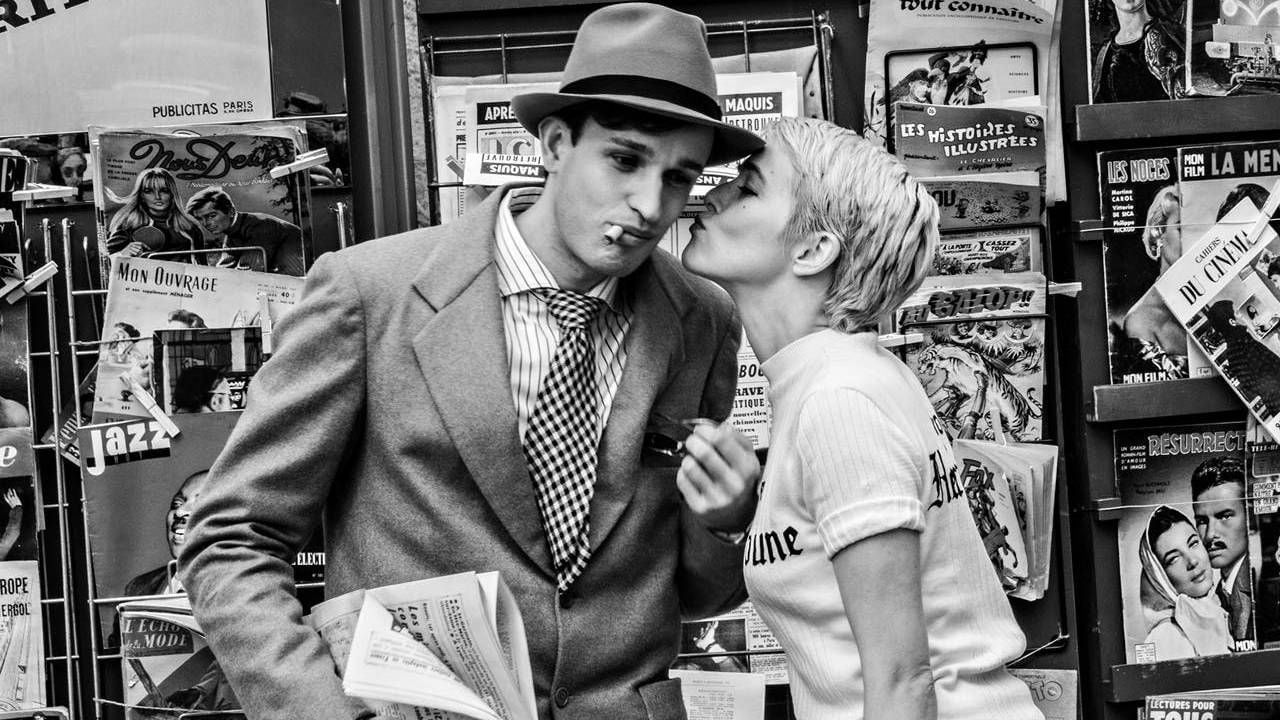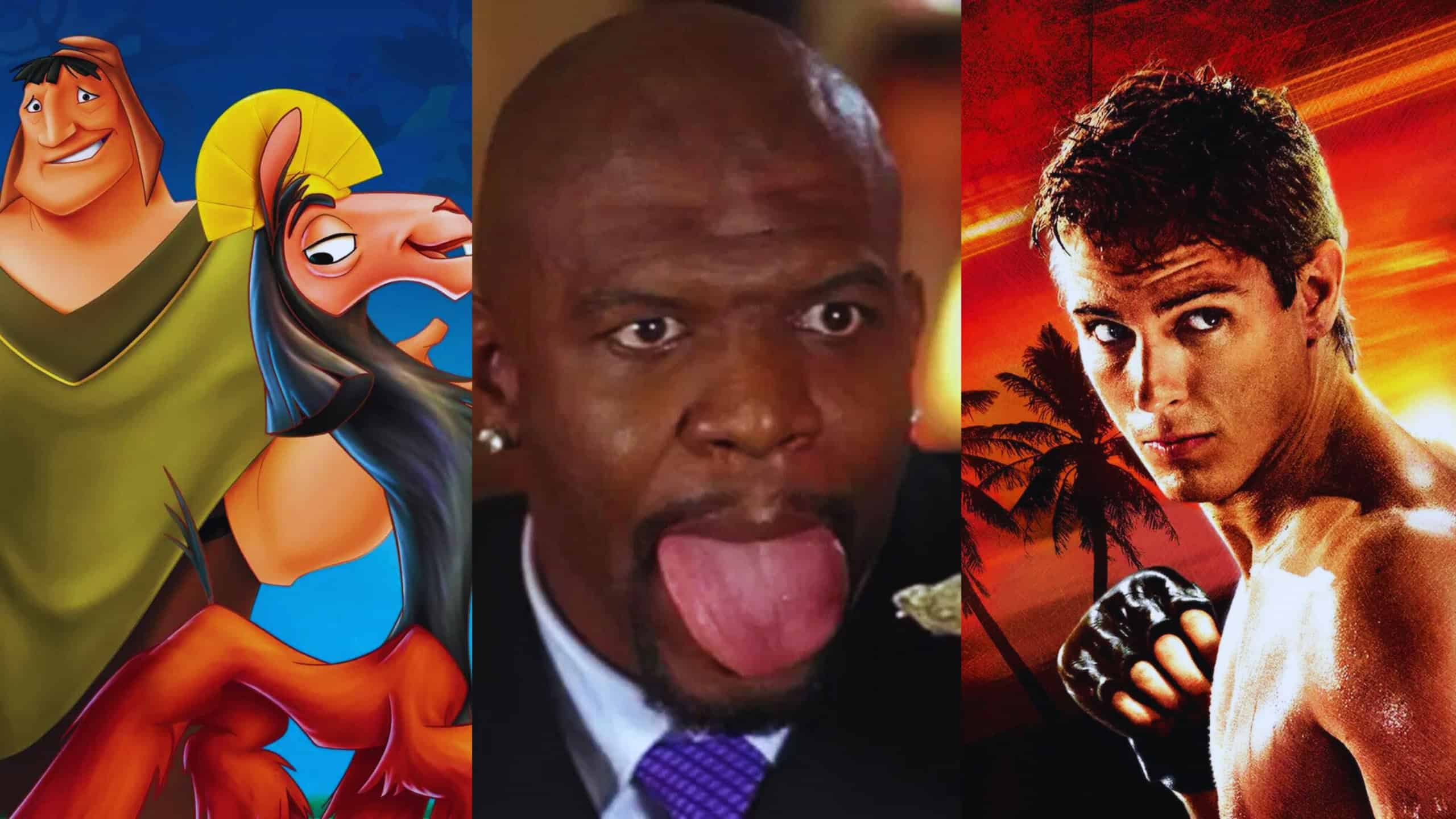The series starring Carlos Cuevas and Miki Esparbé has polarized the audience. We analyze the reasons.
If the Netflix algorithm hasn’t determined that you’re a user with a predilection for romantic comedies and soft LGBT content, it may not have been suggested to you by the ‘Smiley’ series on the app’s cover and you may not even have found out that it exists. But if you are on social networks, you are part of the collective or you follow people who are, then it is possible that you have witnessed or even participated in the Gay Twitter Civil War that has been mounted on account of this title, the last of the Spanish series Netflix in 2022. Of course, It has opened debate in the niche to which it is directed. But what about her?
To start, a bit of context. ‘Smiley’ is a love story between two men from Barcelona, based on the play of the same name released a decade ago, and which exploits the homoerotic vein of Carlos Cuevas (‘Merlí’, ‘Someone has to die’, ‘Merlí : Sapere Aude’), this time together with Miki Esparbé, whose characters, Álex and Bruno, meet by mistake and are outlined as the gym muscle looking for love and the pedant with money wounded by life. Articulated in eight episodes of just over half an hour and with Christmas as the setting time, the series does not hide his vocation romcom light to see in marathon On a silly Sunday afternoon.
“Don’t ask me, I’m just a series”
And that is precisely the star argument to defend it: that it is just entertainment and period. “Don’t think about it anymore,” many said. Man, if we can’t reflect and criticize cultural products other than what they call “high culture”, turn off and let’s go. Although, in a way, I understand the claim of certain people about the need to have classic, simple and even hollow stories to pass the time with, but centered on gay characters (especially when LGTB movies have historically been quite tragic, generating many tropes that are also interesting to analyze). In other words, if straight people have ‘Valeria’ or ‘Emily in Paris’, why can’t gay people have ‘Smiley’?
Of course they can have it, it would be missing more! But the denial of the debate seems a bit childish to me (I even wonder if the resistance to thinking about the series is due to a fear of finding something in its reflection). Because if an objective must have a cultural or entertainment product, it is exactly that, to generate conversation. And that’s where ‘Smiley’, as soon as you scratch, enters thorny places. To begin with, the series does not hide its inspiration, from the trigger of the misunderstanding to the ups and downs of the relationship, in the heterosexual romantic comedies of the nineties and, therefore, replicates their virtues and defects: the promise to the viewer that they could live a fairytale, the exaltation of a romantic love that feels increasingly outdated (certainly in 2022 more than when the work or the films it draws from was born) and the desperate search to fit into the heteronorm.
“Barcelona seems very modern, but…”
Álex’s little pout with which the fiction begins establishes the importance that is given in the universe of ‘Smiley’ to the couple, or the achievement of this, as an unequivocal vehicle towards happiness. However, the longing that he projects from his aspiration is not only to find a boyfriend, but also to that of being assimilated by a society despite our differences. Of course, having a classic life like the heterosexuals of two decades ago may be the goal of a gay person (and character), but it is certainly not a disruptive or modern idea (insert the Belén Cuesta meme here in ‘Kiki, el love is made’ by saying “Madrid seems very modern, but Madrid is not modern“and change it to Barcelona). Fiction puts the most normative in the center and the rest on its own margins.

There is also no risk in the choice of the protagonists, which the creator of the series, Guillem Clua, defines as “a man who embodies the desire dictated by the cisgay norm and another who feels outside of it”. The first thing is easy to understand, especially when Cuevas has been centralizing the cisgay desire of national fiction for years (with the permission of the guys from ‘Elite’), but selling Esparbé as someone outside the norm can raise many eyebrows (when we feel dizzy from the flash of his brilliant teeth). We can even extend this to the character of Ramón, who is the “ugly option” for Bruno and also continues to be a normative Adonis if we were in reality; It reminds me of that “ugly TV” thing they said in ‘The Simpsons’ in the chapter in which Moe became an actor. While, the character that does not have a normative body and with more age, that of Pepón Nieto, is placed, of course, in the place of comic relief and, unlike the protagonists, he is the one who expresses his pen. Lesbians are almost an accessory and trans people are not represented.
Then…?
That ‘Smiley’ has no claim to transcendence is acceptable (if you want a series that opens your mind, I recommend the other Spanish premiere of the moment, ‘Easy’), it is not for nothing that it embraces the mainstream as much as the normative (or what second as a path to the first, rather), although we must not buy the twisted argument that entertainment cannot be deep and invite reflection. And I also understand whoever feels disappointment because one of the (still few) mainstream products starring gay characters has so little depth and it turns out to be less audacious and much more cute than ‘Queer as folk’, the British and the American ones, which are from 1999 and 2000, were in their day, or what they are seen with today’s eyes. Not everything can be ‘Please like me’ or ‘Girls’ in this life, my dears.
Source: Fotogramas
Camila Luna is a writer at Gossipify, where she covers the latest movies and television series. With a passion for all things entertainment, Camila brings her unique perspective to her writing and offers readers an inside look at the industry. Camila is a graduate from the University of California, Los Angeles (UCLA) with a degree in English and is also a avid movie watcher.






